(Note: this article was published in Feb 2013 and modified in May 2017.)
Part 2
(To Read Part 1 of the article CLICK HERE)
Contents
Art of the music licensing deal
Mark Frieser (Sync Summit): Now, let’s change tracks, how do you, as a rights creator and owner, typically go through the licensing process?
Tatsuya: There are several approaches I take to get my music licensed:
2: Via licensing companies and services (in international licensing).
3: Via the copyright society (in domestic licensing in Japan).
Regarding Approach 1, I often deal with friends and acquaintances that I have worked with before. Additionally, as I have my own music library, which stocks my pre-existing and pre-cleared music, licensees such as music supervisors, creative directors, and film directors can contact me and complete a one-stop licensing deal on a global basis.
Approach 2 involves several licensing companies, mainly in the US, that facilitate pitching my music and negotiate with licensees on my behalf. This kind of service has emerged over the past decade, and some companies are doing a great job for me. Building a healthy relationship with them allows you to leverage the potential of your music. But of course, you have to do your homework beforehand.
As to Approach 3, in most cases, licensees in Japan only have to negotiate with and pay licensing fees to JASRAC (Japanese Society for Rights of Authors, Composers, and Publishers) on the basis of their statutory rates. That’s because JASRAC can administrate all copyrights, such as performance, mechanical, and even synchronization rights, on our behalf unless you ask JASRAC to exclude some of them. This type of deal is limited to domestic operations and is very different from the US, where neither PROs nor MROs handle synchronization rights.
What do you think can be done to make the music licensing process and business more fair to better work on behalf of artists, rights holders, and producers?
I don’t really think the business is innately “fair.” The music business has always been competitive, with constant ups and downs and politics. However, you can protect yourself by assessing what you can create or control and then focus on that – your opportunities, business resources, relationships, communication skills, and, of course, the quality and quantity of your music. That’s a much more productive way to look at the business.
You will need to organize your music tracks with necessary tags (composer, publisher, master owner, genre, atmosphere, BPM, sound likes, etc.) and make your own library/portfolio. This will enable industry professionals to audition/evaluate your music immediately.
Also, check with licensing companies, organize your contact list as well as your showreels, and, most importantly, keep updating your news about music placements. You need to keep the industry professionals informed about your recent work and achievements. After that, it’s all about networking and building an amicable relationship to increase the opportunities for getting your music licensed.
When it comes to sync licensing, we can get music licensed and used only after some buyer/customer/client decides to use it for their project. Unless you already have a successful catalog of hit songs or rare opportunities such as tie-in promotions, your stature as an artist and popularity in the music market have little to do with your success in placing music.
Music supervisors and directors see how your music will match or enhance their project, including its concept, target, scene, marketing issues, etc. Unlike label A&R, they are not swayed by your artist persona or bio but rather by the potential of your music to enhance their project.
To increase the possibility of closing a decent deal, we music sellers have to figure out what will make buyers want to use your music. That’s a marketing issue, but I believe that to build relationships with your clients and to boost your credibility are crucial. And this is actually what licensing companies or production/library music companies do for their clients.
So, if you are an artist or a rights holder who wants to get your music licensed, learn from what they do. It’s not wise for an artist, especially an independent one, to think, “That’s their job, not mine.” You should have a “dealer mindset.” Also, you might need to research how your music could be used/synced in media. If you want to have your music placed in stylish TV dramas, watch them and learn what songs are used as well as who the music supervisor is. If you’re interested in licensing your music to automobile companies, research what clients use what type of music toward whom (e.g. their audience).
How technology has affected music licensing business
Let’s talk about technology – do you think it can help artists improve the way they do business?
That’s definitely true, especially if you’re an independent artist. Technology could help you leverage your network and the potential of your music, but it could also work the other way around. Like mentioned before, regardless of whether it is a direct deal with clients/buyers or a deal via licensing companies, you will need very different skills and knowledge than simply gaining ‘Likes’ or plays/listens on social media platforms.
Technology has helped to accelerate democratization, automation, and openness of the music licensing business, but it should be limited to small- or mid-scale projects for web/TV/films/ads on a non-exclusive basis. Bigger licensing deals such as for network TV programs, commercials, or Hollywood (box-office) movie trailers, it’s impossible for you to complete the entire process automatically. No matter how technology evolves, the bigger the project is, the more manpower-/labor-intensive the deal becomes.
And what about technology improving the way music supervisors and other right buyers do business?
It should, but it does not apply to all buyers. Top-notch music supervisors and directors in the know have already had strong business connections and a clue to find the music they want and finalize the deal in time.
They might also use Soundcloud, YouTube, Spotify, and database services such as AllMusic to search for music or bands, but that doesn’t necessarily mean they bother to reach out to unacquainted composers or publishers in person. Having said that, for buyers such as those who are seeking music at a modest price, web-based matching services for non-exclusive licensing deals would help a lot.
Future of the music licensing business
How would you like to see the rights market evolve? What would a better rights market look like?
Honestly, I don’t see the market from a futuristic or macro point of view because the music licensing business and copyright operations differ greatly depending on territory.
Regarding sync licensing, some markets, such as Japan, are static with low liquidity of music (e.g., they are less active in trading music), while the US and UK rights markets are more flexible, moving forward to open competition and seeking the next possibilities for monetizing music. Personally, I think this “liquidity” is the key to the next era of music licensing.
This situation may be limited to the Japanese market, but some copyright authorities still confuse copyright business with culture or even something more academic. While they claim their possessory rights or exercise their rights to claim when abused, some of them despise the tendency of music to be regarded as a financial, cashable/exchangeable asset. Perhaps they haven’t been able to shift out of their old comfort zone. Or, they may be complacent about the oligopolistic situation where you don’t need to compete with other organizations.
By the way, in the traditional standard of accounting, or at least in Japan, calculating music copyrights as potential cash value or financial asset hasn’t been accepted except in the cases of M&A or buyout. So, not only banks and investors but also music publishers and copyright organizations (unless they’re subsidiaries or branches of global mega publishers) haven’t gotten into the habit of considering copyrights as a cash value. That lack of asset management mindset, or rigidity, could undermine the potential of developing their portfolio globally in the future.
While we still have a long way to go, I hope each rights market will grow to be more mutually complementary, flexible/fluid, deal-friendly, and transparent—not to say it should follow a stock or real estate market. All we have to do now is learn the differences, find the opportunities in each market, and make the most of them.

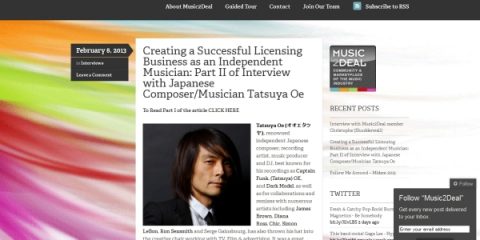
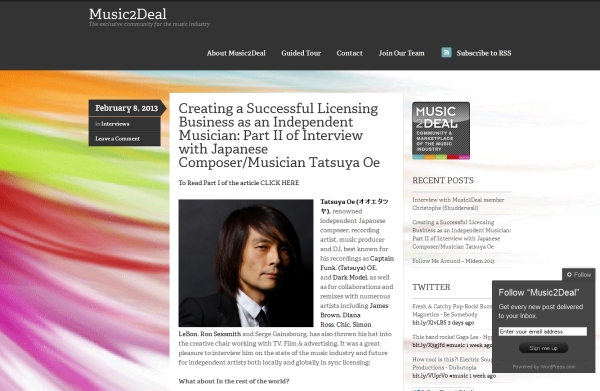





 What are the Numbers Game and Waiting Game? Talk about how t
What are the Numbers Game and Waiting Game? Talk about how t  My personal story of bootstrapping an independent music labe
My personal story of bootstrapping an independent music labe 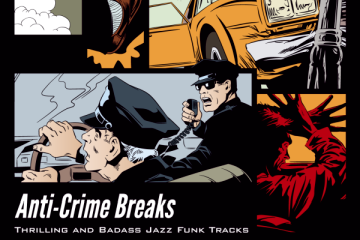 The album "Anti-Crime Breaks" features robust and
The album "Anti-Crime Breaks" features robust and 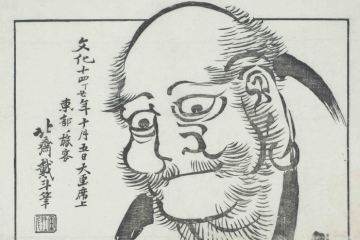 Exploring the power of prolific creation through artists lik
Exploring the power of prolific creation through artists lik  Here is the making of Dark Model’s new track "Rage and
Here is the making of Dark Model’s new track "Rage and 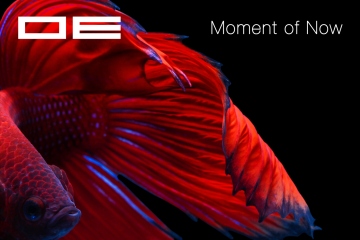 Zero in on Now “Moment of Now,” the fifth album of OE’s Zen-
Zero in on Now “Moment of Now,” the fifth album of OE’s Zen-  Uncover the ‘Hidden Best Album’—packed with fresh, surprisin
Uncover the ‘Hidden Best Album’—packed with fresh, surprisin  We just have created our Spotify profile, which has many pla
We just have created our Spotify profile, which has many pla 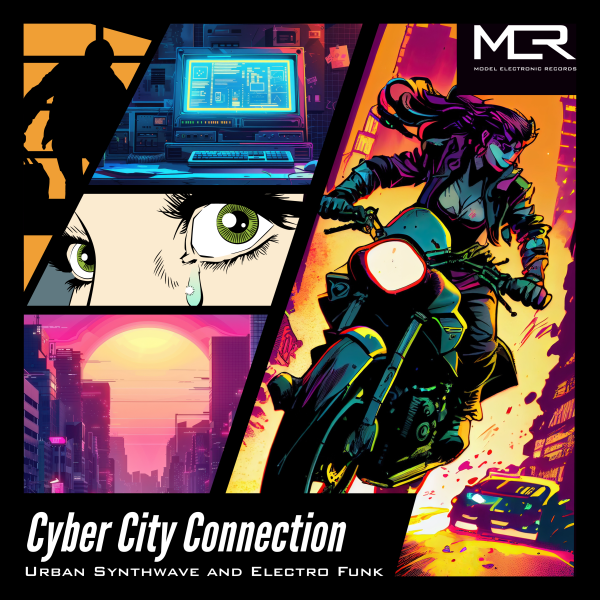 The 8th release under the MER moniker by Tatsuya Oe (Captain
The 8th release under the MER moniker by Tatsuya Oe (Captain  Minimalism and grooves weave the interplay of light and shad
Minimalism and grooves weave the interplay of light and shad